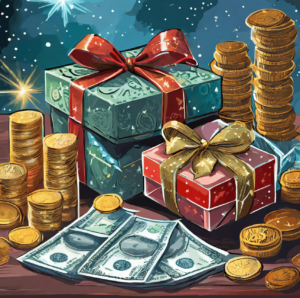
Happy Tuesday. Congrats we made it through Blue Monday, supposedly the saddest day of the year. Here is some good news to kick off the rest of your 2022.
In today’s edition:
🥾 Timberland launch takeback scheme
🚩 Red flags for carbon capture and storage
🌍 A new method for valuing nature conservation

Timberloop: Timberland launches takeback scheme for clothes and shoes
The situ: The fashion industry is one of the world’s most wasteful – with estimates that, globally, a bin lorry of textiles end up in landfill every second.
Timberloop: Timberland has announced the launch of a product take-back scheme, ‘Timberloop’, to support the company’s goal of full circularity by 2030
The process: The returned clothes and shoes are quality checked, and If]repairable then they are fixed and resold; if they’re beyond repair, they’re recycled. To incentivise uptake, Timberland are giving customers a 10% voucher on their next purchase.
A growing market: Big companies are eager for the returns from a resale market that is set to grow to $64bn by 2024 – expanding 1.5x quicker than the fast fashion sector.

A Policy update
- New York unveiled the Fashion Sustainability Act: a bill that would make the biggest brands in fashion accountable for their role in climate change. Brands would need to map 50% of their supply chain and disclose the areas of greatest social and environmental impact. (Aligning with one of our 1 predictions for 2022)
- 155 Chileans have been elected to write a new constitution amid a “climate and ecological emergency.” as anger has grown over the exploitation of Chile’s lithium reserves (essential to the world’s transition to green energy).
- Germany outlined plans to get back on (climate) track, as it risks missing its emission reduction targets for 2030, if it does not x3 CO2 reductions compared with the last decade. The plan will include mandatory solar roofs for new buildings, new funding for green hydrogen and many more wind turbines.
Burberry signs £300m sustainability linked loan
Burberry has secured a £300m Sustainability Linked Loan, coordinated by Lloyds Bank. The amount repaid on the loan will be linked to the achievement of key ESG targets as part of Burberry’s ambition to become Climate Positive by 2040. This includes accelerating emissions reductions across its extended supply chain (Scope 3) by 46% by 2030 and becoming net-zero by 2040.
🤖 Future of Tech (1-minute read)
Carbon Capture and Storage ‘red flag?’ World’s sole coal project hits snag
Carbon Capture utilisation and storage: The capture of carbon dioxide (CO2) emissions from industrial processes, transport and storage deep underground in geological formations or use to create valuable products.
Teething problems: The world’s sole carbon capture project on a power plant caught 43% fewer metric tons of carbon dioxide in 2021 compared with the year before due to equipment failure. Critics say this demonstrates that the technology shouldn’t be funded at coal power plants.
Drop in the ocean… for now: Annual CO2 capture capacity totals 40mn tonnes of the 52bn produced annually. With growing investment incentives and net-zero targets, the IEA predicts CCUS will reduce 15% of emissions in a net-zero energy sector by 2070.

Self-driving tractors are coming to a field near you
The world population is expected to grow to 10 billion people by 2050 which will drive demand for food up by 50%. John Deere’s self-driving tractor may provide a solution to the rising demand for food. The tractor uses cameras and artificial intelligence to navigate around the environment, it can find its way to a field on its own, and will then
plow the soil or sow seeds. The farmer can leave the field altogether and let the equipment do the work while they monitor it via an app on their smartphone. As the farming industry continues to battle with labour shortages, due to the manual nature of the work, the autonomous tractor allows farmers to produce more food with less staff.
💡Start-up Spotlight (1-minute read)
Natural Capital… is the world’s stock of natural assets, such as water, soil and biodiversity. The global economy relies on ‘natural capital’ as it provides essential services like limiting the impacts of climate change and supporting food production.
The issue: Human activity, such as deforestation and habitat loss through agriculture, is destroying the services provided by natural capital.
A new target: To reduce the current rate of destruction to natural capital, scientists state 30% of the planet’s surface needs to be set aside for conservation by 2030.
However… The complexity of natural capital makes it difficult to determine which 30% of the world’s surface would be most valuable to focus conservation efforts on.
A new method: Created by McKinsey divides the planet’s surface into land areas of 5km by 5km and marine areas of 30km by 30km – which are called “pixels”. This global “pixelated” map is then overlaid with a range of natural capital data, like biodiversity and human carbon footprint.
So what? McKinsey’s method simplifies the valuation of conservation projects so different conservation scenarios can be compared and investment targeted to maximum benefits, which include:
- Job Creation: Approx. 650,000 jobs created in conservation, such as wildlife management.
- Growth of nature-dependent markets: Up to $500bn in GDP and 30 million jobs through ecotourism and sustainable fishing.

💭 Little Bytes
Quote: “We must do everything necessary to clear the shadow of the pandemic and boost economic and social recovery and development, so that the sunshine of hope may light up the future of humanity.” Xi Jinping’s message to The World Economic Forum’s Davos Agenda
Stat: Currently, one in every five hectares of land on Earth is unusable and by 2050 only 10% of land could be healthy.
Watch: How a video game could help save an indigenous culture
🗞 In other news…
- Beyond Fried Chicken to make US nationwide debut at KFC
- Holcim to trial ‘breakthrough’ magnetic concrete for wireless EV charging
- Ocean Battery stores renewable energy at the bottom of the sea
- California’s new composting law — a game changer for food waste as fines can be levied for failing to separate organic refuse from other trash
- Invisible barcodes could increase plastic recycling
🎣 Gone Phishing
Three of these stories are true, one we made up, can you guess which?




